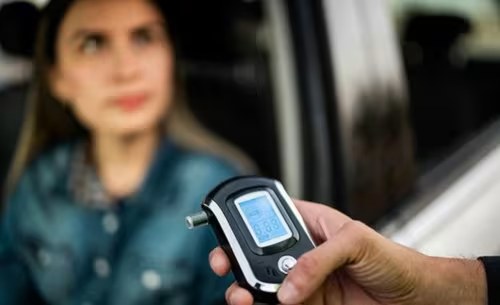Disclaimer: This guest post was written by a third party and is for informational purposes only. It does not constitute legal advice or create an attorney-client relationship with The Meehan Law Firm. For legal advice, please contact our office.
%20(1).webp)
%20(1).webp)
What Happens When You Get a DUI in California?
That means it will appear on both an individual’s driving record and criminal record. If it’s a first DUI and no one was injured, it’s classified as a misdemeanor, and penalties will possibly consist of fines, jail time (though unlikely), a mandatory alcohol education class, and a temporary suspension of the driver’s license. The severity of penalties increases with repeat offenses or aggravating circumstances, such as having a very high blood alcohol concentration (BAC) or causing an accident while driving under the influence.
How Long Does a DUI Stay on Your Record?
In California, a Driving Under the Influence (DUI) conviction can remain on the record for 10 years from the date of the offense. On your criminal record, a DUI remains permanently unless it is expunged. This means that the conviction can be visible to employers, licensing agencies, and others conducting background checks for a significant period. California law does allow for a DUI conviction to be expunged from your record if you successfully complete probation, but the prosecutor’s office may object to it being expunged automatically, then you would have to petition to court for the expungement.
How a DUI Affects Employment Opportunities
There might be other impacts of a DUI on your record. For instance, DUI can affect employment in different ways, depending on the occupation and the nature of the job. Jobs that require driving, such as delivery services, commercial driving, or positions with ride-sharing companies, are likely to have stricter regulations and therefore limitations for individuals with a DUI on their record. Certain industries may also have regulations or licensing requirements that disqualify individuals with DUI convictions. For example, positions in law enforcement or roles requiring security clearance. If your job requires you to drive a company vehicle, some companies will not hire you while you are required to have proof of insurance on file with the DMV (generally for three years following a DUI action with the DMV).
The Expungement Process
Expungement is a legal process where an individual has the opportunity to petition to have the DUI conviction dismissed, but this option is only available after all penalties and probation have been completed. Although an expungement won’t remove the DUI from a person’s driving record, it dismisses the conviction from their criminal record, allowing them to legally answer "no" when asked if they have been convicted of a crime on most job applications.
The automatic expungement process in California begins one month after you successfully complete probation when the Department of Corrections sends a list of eligible cases to the Superior Court. The Court clerk would then process expungements on each case as long as there is no objection from the prosecutor. The Court will normally process these expungements within three months of successfully completing probation. If the Court does not automatically expunge the conviction, then you can petition the court to expunge your conviction. The petitioner must provide evidence of completed sentence requirements and demonstrate good conduct since the conviction. If granted, the court will issue an order of dismissal, which updates the individual’s criminal record to reflect the status as dismissed. The process can take several months and may involve court fees, but with legal representation navigating these complex nuances can be shorter and go smoothly.
Lesser-Known Facts About DUIs in California
- Cycling Under the Influence (CUI): In California, you can be charged with a misdemeanor for riding a bicycle under the influence of alcohol or drugs. While less severe than a DUI, it can still result in fines and a criminal record.
- Employment Protections: Some employers may be more understanding of first-time DUI offenses, particularly if you take responsibility and demonstrate rehabilitation. California’s employment laws are designed to offer individuals with a criminal history a chance to re-enter the workforce. These employment laws also require employers to offer the position prior to any background checks.
Regulatory Framework and Employment Decisions
California law regulates how DUI convictions are considered in employment decisions through various statutes and guidelines. Employers must adhere to fair employment practices and cannot discriminate solely based on a criminal record without considering the nature of the offense, its relevance to the job, and the applicant's rehabilitation efforts. This framework aims to balance the need for public safety with the opportunity for individuals to move forward after a DUI conviction.
Conclusion
A DUI in California can have a lasting impact on an individual’s record and employment opportunities, but the situation is not without remedies. The impact of DUI on your record can be mitigated through steps such as expungement or other legal strategies to minimize long-term consequences. Whether facing a DUI or having concerns about its potential impact, staying informed and proactive is key to moving forward. If you are looking for a Criminal Defense Law Firm specializing in DUI and criminal defense, contact The Meehan Law Firm for experienced legal representation and dedicated advocacy.
Stay Informed
Stay up to date with the latest information on DUI charges and their consequences by visiting our blog. Learn about legal updates, potential penalties, and effective defense strategies.
(844) 4-DUI STOP
Categories
Need Help?
Free Consultation, discreet, and no obligation- talk to an attorney.
More Blogs

How Can You Defend Someone Who Is Guilty?
Defense attorneys protect constitutional rights, ensure due process...
Read More..
Why a Second DUI Might Be Your Wake-Up Call
Facing a Second DUI in California: Why It Should Be Your Wake-Up Call..
Read More..
How To Spot a Bad DUI Lawyer in 10 Minutes or Less
Choosing the Right DUI Lawyer in California: Spotting Red Flags Early...
Read More..



